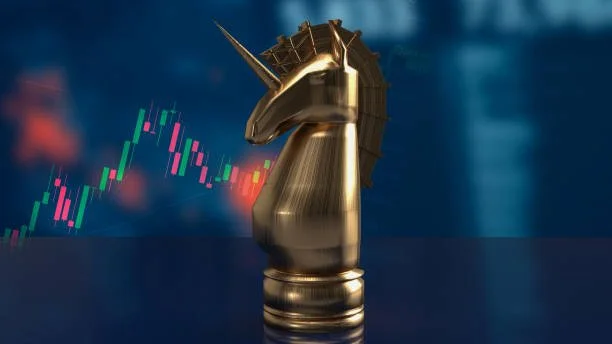By: Vansh Juneja & Grace Fan
While some have called them “the emblem for our times”, others warn against the inherent risk in investing in them. Today, “unicorn” refers to a privately held venture with a value exceeding $1 billion. Unlike the mythical creature, these unicorns are everywhere around us. Airbnb, Epic Games and SpaceX are just a few of the 600 unicorn companies around the world.
The hype over unicorn IPOs, for better or for worse, should be carefully assessed by early-stage investors. Valuing unicorns relies heavily on relative valuation which is comparing a company’s value to that of other similar businesses. As a result, it becomes sensitive to the overall market sentiment and as TechCrunch concludes, “when the market is high, valuations of private companies soar.” The capital-raising process can also contribute to overvaluation. Startups sell shares to raise money in each round. Starting with Series A and all the way to its last round, each fundraising round and share class holds its own set of rights, conversion, and preferred payments. Statistically, software companies tend to take 6 rounds before exiting while social media companies take around 6. The benefits extracted from each series increase investor confidence with the assurance of higher levels of minimum return. The inherent value of the startup, however, does not increase with each round, while restrictions and protections increase investors’ interest. Worse, the valuation is often based on the price of that latest series being applied to all outstanding shares regardless of varying restrictions or protections among those shares. As Stanford business illustrates this phenomenon: “In some series, investors are promised 1.5 to 2 times their money should an initial public offering (IPO) fizzle. In that case, other shares can be worth far less.”
It is estimated that only 0.07% of software startups founded in the 2000s ever reached the unicorn stage. Despite the rarity of such companies, or perhaps because of it, investors have been pouring capital into early-stage ventures, driving up valuations built on unsustainable and highly uncertain business models.
The hype over unicorns in the mid 2010s was largely built on the prospect of an IPO allowing for liquidation and high returns for early, private investors. This hype resulted in the valuations of unicorns skyrocketing far above their fair market value, and thus no longer representing the fundamentals of these businesses. Today, the prospect of a start-up reaching the unicorn stage has become an end in and of itself. As a result, unsustainable valuations have bled into earlier-series rounds as venture capitalists and now other institutions like hedge funds throw money at companies out of fear of missing out on the next unicorn.
Unlike public companies, there are no short sellers to balance against exuberant investors in the private equity market. And as companies defer IPOs, staying private for longer, the lack of transparency adds further uncertainty to business operations, and thus valuations. This lack of transparency tends to add to the overvaluation of start-ups.
Theranos is a perfect example of unicorns’ discontents culminating to create devastating consequences for investors of the company. Over-eagerness likely clouded investor judgement, resulting in one of the largest fraud schemes in history. Investors over $1 billion with the valuation of the fraudulent business reaching over $10 billion at its peak. The combination of investor exuberance and secrecy in private markets allowed for a scam like this to ensue.
Overvaluation of a start-up may sound like it should be terrific for the company itself, allowing founders to raise more capital for a smaller portion of their business. Although this simplistic interpretation fails to account for longer-term ramifications. These can include undue pressure to perform, as well as difficulty raising capital in later rounds.
When the market value of a business surpasses its fair value, this implies that investors have higher expectations for the company’s performance than its currently positioned to realize. This puts increasing pressure on the company to post higher performance metrics and encourages a “growth at all costs'' mindset. The issue is that this growth is oftentimes unsustainable, potentially leading to short-term profitability while sacrificing long-term value. Additionally, if a company fails to perform, it will face difficulty raising capital in future rounds at a higher or equal valuation to the previous round. Raising capital at a lower valuation discredits the business moving forward and disproportionately dilutes shares, reducing the founder(s)’ equity stake in the business.
Ultimately, the overvaluation of start-ups in the unsustainable pursuit of unicorn status results in consequences for founders, companies, but most importantly for the investors in the companies. This is not to say that all unicorns are overvalued; in fact, some of the best sources of outsized returns come from these earlier-stage investments. Early-stage investors should simply be wary of the unicorn bubble, and take a closer look at the intrinsic values of unicorns before choosing to invest.

